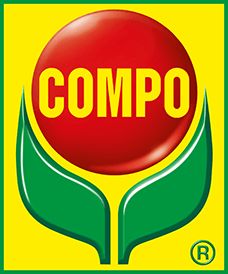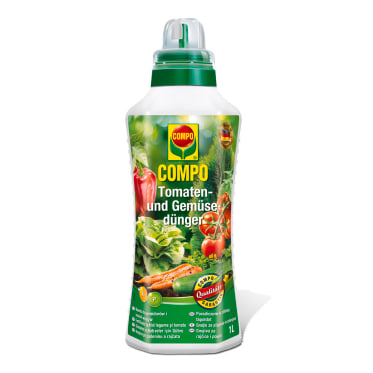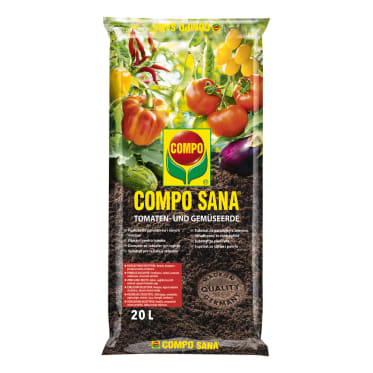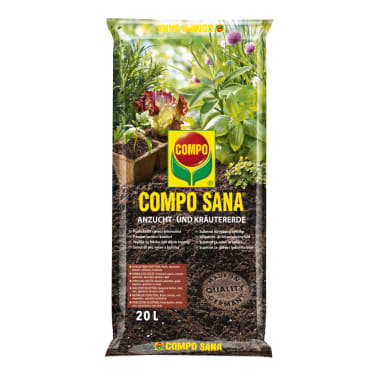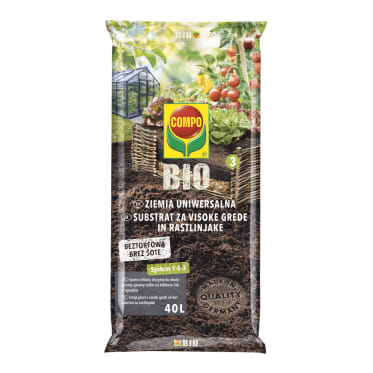Frequent search terms

- COMPO
- Guide
- Plant Care
- Herbs, fruits and vegetables
- The most important activities in your kitchen garden
Growing vegetables
The most important activities in your kitchen garden
Fortunately, growing fresh vegetables right on your doorstep is not difficult and rewarded with a tasty harvest after only a few weeks. Find practical tips for getting off to a good start with the vegetable patch here.
Preparation
Create the right foundation
Activating the soil: Turning over, loosening, ploughing with the grubber and levelling the soil form the foundation for preparing the vegetable patch for seeding. Roots and pebbles also need to be removed. The upside: The treatment dries and warms the soil – two important conditions for good plant growth. This also stimulates microbial soil life, i.e. the disintegration and conversion of dead organic matter such as leaves and roots by soil organisms. Another advantage is that it also reduces the growth of wild weeds. Fertilisers can also help to activate soil life in this stage.
Fill sowing containers: If you opt for these, you should only use clean, germ-free containers with low-salt growing soil.
Check the seeds: Fresh seeds provide the best germination results. Stocks left over from the previous year can be used if they are stored dry and protected against frost.

Sowing
It's all about the right timing
Protect pre-crops: Sowing early from February until the end of April is ideally carried out under glass. To do this, simply sow the seeds evenly in the prepared seeding pots. Depending on species, healthy seedlings will soon develop on the moist substrate at temperatures of around 20 °C.
Sowing outdoors: Depending on the sensitivity of the plant species, sowing is possible outdoors from late March. It is better to sow heat-loving herbs and vegetable varieties after mid-May – after the Ice Saints period, to be precise.
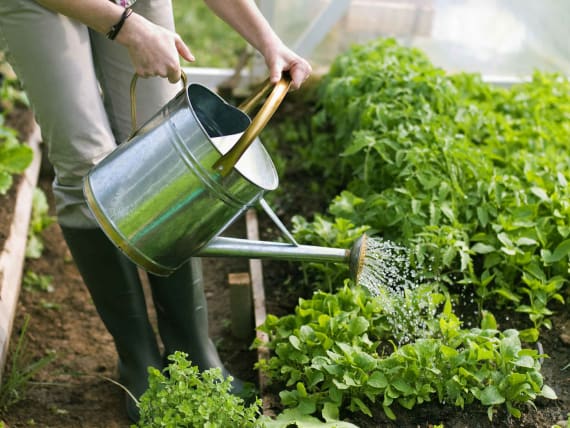
Care
Thorough care ensures a rich harvest
Separate plants: As soon as the cotyledons are well formed, the seedlings are separated. This is important to increase the distance between the plants and reduce the risk of fungal infection.
Plant seedlings: Well-developed seedlings are planted in the prepared bedding. If there is the risk of frost in late spring, you should protect the young crop plants against freezing with a film cover or non-woven material.
Care for the vegetable patch: Until harvested, the vegetables and herbs must be regularly watered and fertilised. The soil also needs to be raked and cleared of wild herbs. Regular pest control also prevents feeding damage and ensures a rich harvest.
These products are suitable for your vegetable garden
